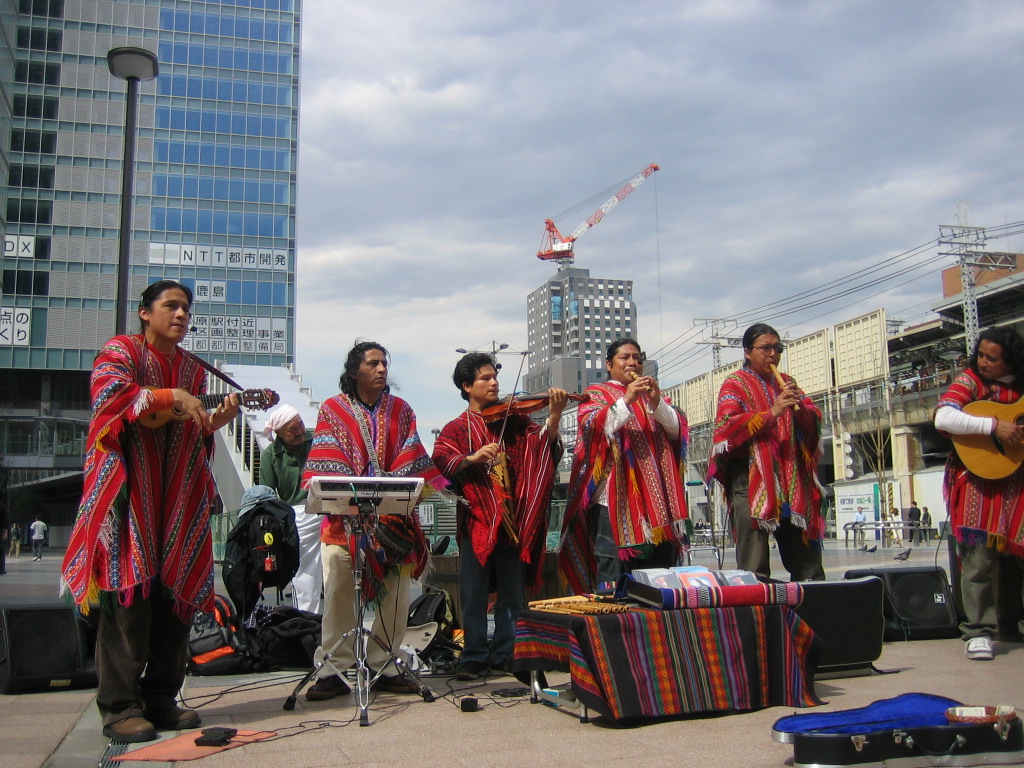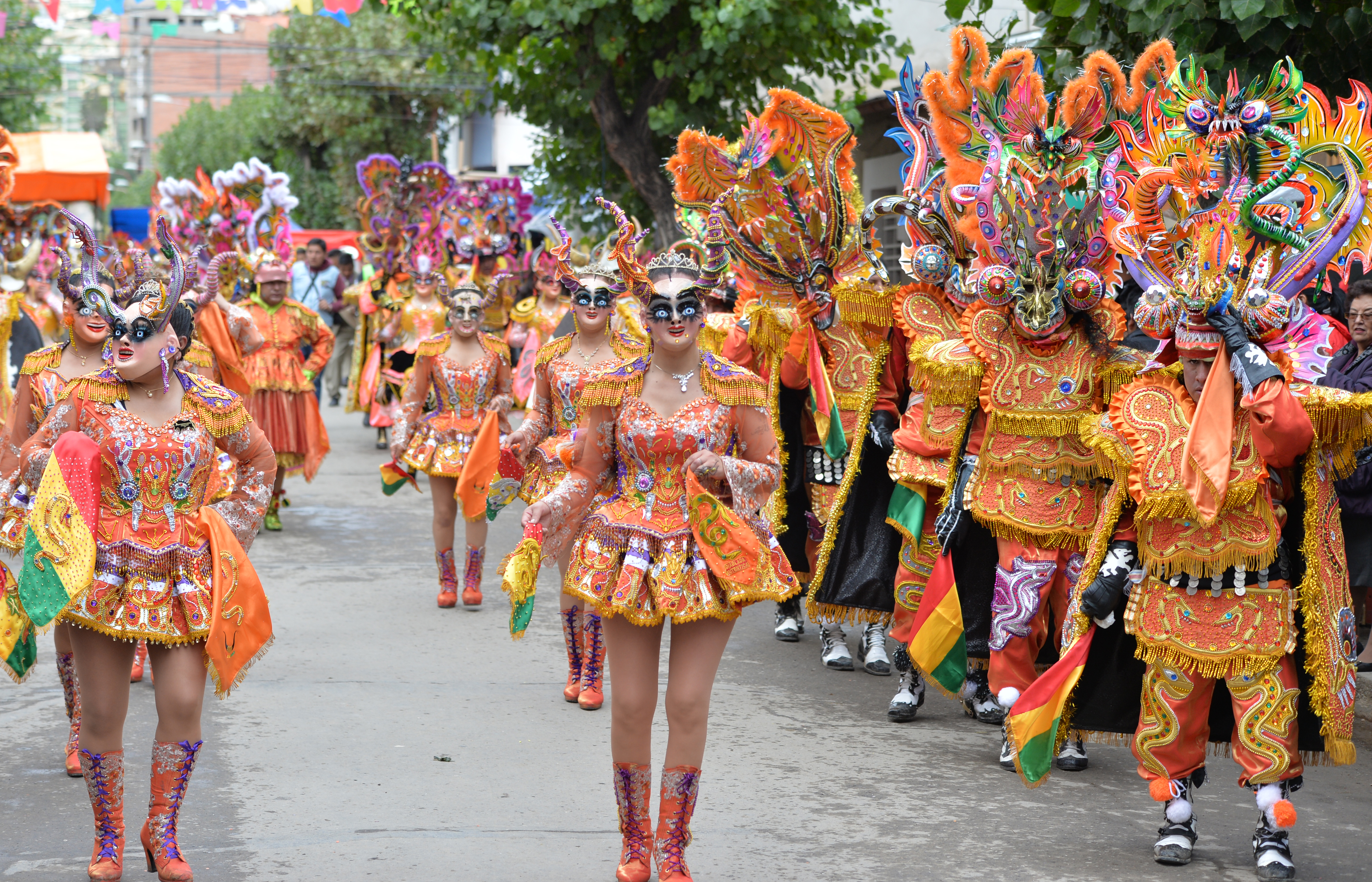Exploring the Distinctive Andean Music of Bolivia
Jan 14, 2025 | By Piz za
The Andean music of Bolivia is a vibrant and integral part of the country’s cultural tapestry, deeply rooted in the traditions and spiritual practices of the Andean peoples. This genre of music is not only a form of artistic expression but also a medium through which the stories, legends, and historical narratives of the Aymara and Quechua communities are conveyed. The unique sounds of Bolivian Andean music have captivated audiences both domestically and internationally, offering a rich auditory experience that reflects the diverse heritage of the region (Visit Bolivia).
Historical Context

Andean music in Bolivia has a long history that predates the arrival of Europeans in South America. Indigenous communities have relied on music as a means of storytelling and spiritual expression for centuries. The influence of these native sounds is evident in the music of neighboring countries like Ecuador and Peru, yet Bolivia’s interpretation remains distinct due to its unique blend of cultural influences and historical developments (Chaotic Rhythm).
Traditional Instruments and Their Cultural Significance
The instrumentation of Bolivian Andean music is characterized by its use of traditional instruments, each carrying its own cultural significance. Instruments such as the charango, a small stringed instrument resembling a ukulele, and the ronroco, a larger variant, are central to the Andean sound. These instruments are often crafted from local materials, such as the shell of an armadillo, which adds a distinctive timbre to the music (NPR).

Wind instruments like the pan flute and the siku, a type of Andean panpipe, are also prevalent. These instruments are known for their haunting melodies and are often used to evoke the vast landscapes and spiritual essence of the Andes (PBS LearningMedia).
Cultural and Spiritual Identity

Music serves as a cornerstone for the cultural and spiritual identity of the Andean peoples. It is a medium through which emotions are expressed, communal bonds are strengthened, and cultural heritage is preserved. The melancholic and high-spirited tunes of Andean music reflect the dual nature of life in the highlands, where joy and sorrow coexist. This duality is often mirrored in the legends and stories told through song, providing a deep window into the Andean people’s spiritual and cultural life (Southworld).
Notable Artists and Ensembles
Bolivia has produced several notable artists and ensembles that have contributed to the global recognition of Andean music. Los Jairas, a group from La Paz, played a pivotal role in popularizing Andean music in Europe. Their innovative approach combined traditional sounds with contemporary influences, paving the way for future generations of musicians (Andean Nation).

Another prominent group, Los Kjarkas, has been instrumental in bringing Bolivian Andean music to the forefront of the world music scene. Known for their use of traditional instruments, Los Kjarkas have successfully blended folk elements with modern musical styles, earning them international acclaim (NPR).
Contemporary Influences and Recent Developments
In recent years, Bolivian Andean music has continued to evolve, incorporating contemporary influences while maintaining its traditional roots. The fusion of Andean music with genres like rock, jazz, and electronic music has led to the emergence of new sounds that appeal to younger audiences. This evolution is indicative of a broader trend in world music, where traditional forms are adapted to suit modern tastes without losing their cultural essence (Karikuy).

The celebration of Andean Music Day highlights the ongoing relevance and cultural significance of this genre. Events and festivals dedicated to Andean music provide platforms for artists to showcase their work, fostering a greater appreciation for this unique musical tradition both in Bolivia and abroad (Karikuy).
Must-Visit Locations
Bolivia offers a wealth of destinations where visitors can immerse themselves in the rich heritage of Andean music. From bustling urban centers to remote highland villages, these locations provide unique opportunities to experience the sounds, instruments, and traditions that define this captivating genre.
- La Paz – The Cultural Heart
Home to vibrant music festivals and traditional performances, La Paz is a hub for experiencing Andean music. The city hosts the Bolivian National Folklore Festival, a celebration of traditional music and dance. - Cochabamba – Birthplace of Los Kjarkas
Known as the hometown of the renowned musical group Los Kjarkas, Cochabamba offers insights into the modern evolution of Andean music. Visit local music venues and workshops to witness live performances and instrument crafting. - Lake Titicaca – Spiritual Origins
Surrounding villages like Copacabana and Isla del Sol provide a serene setting for traditional music, often performed during local ceremonies and festivals. The spiritual connection to music here is palpable. - Potosí – Historical Legacy
Potosí’s rich mining history is intertwined with the traditional songs and instruments of the region. Explore the city’s museums to understand the cultural and historical roots of Andean music. - Tarabuco – The Heart of Indigenous Traditions
Famous for its Sunday market and traditional Yampara culture, Tarabuco is a great place to experience indigenous music in its purest form, accompanied by colorful costumes and ceremonial dances.
These destinations not only highlight the diversity of Andean music but also offer a deeper appreciation for its cultural and spiritual significance. Whether attending a live performance in La Paz or exploring the tranquil melodies by Lake Titicaca, visitors will leave with an unforgettable connection to the soul of Bolivia’s Andean traditions.
Conclusion
The Andean music of Bolivia is a testament to the enduring spirit and cultural richness of the Andean peoples. Through its traditional instruments, storytelling, and innovative adaptations, Bolivian Andean music continues to captivate audiences and preserve the cultural heritage of the region. As it evolves, this genre remains a vital part of Bolivia’s cultural identity, offering a bridge between the past and the present, and a window into the soul of the Andes.
Related Blogs

India vs New Zealand: A Traveler’s Perspective on Two Unique Destinations
India vs New Zealand are two destinations that offer contrasting yet equally mesmerizing experiences. India vs New Zealand comparisons often highlight India’s centuries-old traditions, bustling bazaars, and architectural marvels versus New Zealand’s breathtaking natural landscapes and adrenaline-pumping adventures. Whether you’re a culture enthusiast, nature lover, or thrill-seeker, this guide will help you explore the best […]

Barbastro Barcelona: A Journey Through Spain’s Hidden Gems
Spain is a treasure trove of culture, history, and breathtaking landscapes. Two destinations that encapsulate the country’s charm are Barbastro Barcelona. While Barcelona is renowned for its vibrant city life and iconic architecture, Barbastro offers a quieter, more traditional Spanish experience nestled in the heart of the Somontano wine region. Together, they create the perfect […]

The Complete Guide to the Carry On Cast: Past, Present, and Future
The Carry On films stand as a cornerstone of British cinema, delivering decades of laughter and unforgettable characters. This iconic comedy franchise, spanning over 30 years, combined slapstick humor, clever wordplay, and a talented ensemble cast that became household names. This guide explores the history of the Carry On cast, their contributions to the franchise, […]

Exploring Austria’s Iconic Opera Houses
Austria, a nation steeped in a rich cultural heritage, stands as a beacon of classical music and artistic excellence. Among its most revered cultural institutions are its opera houses, which serve as both architectural marvels and stages for world-class performances. This report delves into the history, architecture, notable performances, and cultural significance of Austria’s iconic […]

Exploring the Distinctive Andean Music of Bolivia
The Andean music of Bolivia is a vibrant and integral part of the country’s cultural tapestry, deeply rooted in the traditions and spiritual practices of the Andean peoples. This genre of music is not only a form of artistic expression but also a medium through which the stories, legends, and historical narratives of the Aymara […]

Learning About the Carnival Culture in Rio de Janeiro, Brazil
The Rio de Janeiro Carnival, often heralded as the world’s largest and most famous carnival celebration, is a vibrant showcase of Brazilian culture, history, and community spirit. This annual event, which draws millions of participants and spectators from around the globe, is a testament to Brazil’s rich cultural heritage and its capacity for joyous celebration. […]

Mastering Mozzarella: A Taste of Italy
Mozzarella, a semi-soft cheese originating from Italy, is cherished for its creamy texture and mild flavor. Traditionally crafted from buffalo milk, it also finds a popular variant made from cow’s milk. This cheese is not just a culinary staple but a cultural icon, deeply embedded in Italian society and cuisine. Its high moisture content contributes […]

Discovering the Art of Calligraphy in South Korea
Korean calligraphy, known as “Seoye” (서예), stands as a testament to the rich cultural heritage and artistic expression of Korea. This ancient art form, which involves the artistic writing of both Hanja (Chinese logographs) and Hangul (the Korean native alphabet), transcends mere communication to become a profound medium of aesthetic and spiritual expression. As we […]

Scotland’s Tartan: A History of Highland Dress
Tartan, with its vibrant patterns and historical richness, is one of Scotland’s most iconic symbols. It is inextricably linked to the kilt and the national dress of Scotland, embodying both cultural heritage and identity. This detailed report delves into the origins, evolution, and cultural significance of tartan and Highland dress, exploring how this textile has […]

Tribal Arts of Papua New Guinea: A Unique Heritage
Papua New Guinea (PNG) is a nation marked by its remarkable cultural diversity, with over 800 distinct tribes, each possessing its own language and customs. This diversity is vividly expressed through the tribal arts, which are not only a testament to the rich heritage of the indigenous people but also serve as a living tapestry […]

